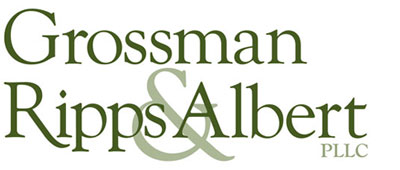Frequently Asked Questions
Clients often wonder about various aspects of the work we do for them — here are some of the questions that we hear regularly.
Our office — pictured above — is located just over a mile from the center of both Norwich, Vt., and Hanover, N.H., and offers plenty of immediately adjacent parking.
About Estate Planning | About Estate Administration | About Real Estate
About Estate Planning
Does estate planning have to be complicated?
- No. Although each situation is different, particular situations often follow known patterns. At Grossman Ripps & Albert, we work very hard to understand each client’s needs and then to prepare straightforward documentation that meets their objectives.
Does estate planning have to be expensive?
- No. We strive to take a common-sense approach to this important matter. We do not charge by the amount of paper we produce. We take the time to understand our clients’ situations and wishes and then efficiently prepare the documents they need.
- Each situation is different. In order to give clients an idea of costs, we need to understand their situation. We are happy to discuss costs with you. Contact us to learn more.
Does everyone need a trust?
- No. Some people do, some people don’t. We work with each client to see if their particular situation requires a trust.
Who needs estate planning?
- The simple answer is everyone!
- Here are a few specific examples: Parents may use estate planning to provide for their children by appointing a guardian, as well as a trustee to manage their financial assets. Married couples may use estate planning to create trusts for tax management purposes. Anyone can use estate planning to plan for retirement and to most economically transfer their assets to the next generation.
Why do I need estate planning?
- Estate planning deals with one’s affairs after death, while at the same time helping to organize one’s affairs during life (see “Powers of Attorney” under the “What documents do I need?” question below).
- Without a will, a person’s assets are transferred according to the state’s intestacy laws; these laws may not reflect the way a given individual wants to distribute their assets. But an estate plan can be tailored to distribute your assets according to your wants and needs. With an estate plan, you can make specific bequests to leave given sums of money or items of personal property to particular individuals or organizations.
When do I need to update my current estate planning?
- There is no set time period when one should regularly update estate planning; rather, it is prudent to do so when either one’s life circumstances change or the law changes. It is a good idea to check in when your situation changes, and at that time we can see whether the law has also changed.
- If you have moved to the Upper Valley from out of state, it is probably a good idea to have your current estate plan reviewed to see if any local changes are needed.
What documents do I need?
- Financial Power of Attorney: The most useful documents are those intended for use during your life. You can use a power of attorney for financial matters to appoint an agent to assist you in conducting business.
- Advance Directive for Health Care: An advance directive for health care appoints an agent to make medical decisions if you are unable to do so. This document also gives your agent the ability to make end-of-life decisions for you.
- Will: The basic document that someone needs to direct their affairs after their death is a will. A will appoints an executor, who gathers the individual’s assets and distributes them according to the wishes expressed in the will. A will can also appoint a guardian for minor children.
- Trust: A trust is a tool that can be used for many different purposes. The purposes for which our clients find trusts most useful are to appoint a trustee to care for assets for minor children, to care for assets for someone who needs long-term care due to a physical or mental illness, and to most economically manage taxes. Because tax laws are currently fluctuating, we also can create documents that give a surviving spouse the option of using a trust or not, depending on the tax landscape at time the estate is probated.
- The probate process in both Vermont and New Hampshire is not as costly or difficult as is the case in some other states. Therefore, in our experience, it is not as advantageous here to use trusts “to avoid probate” as weighed against the layer of complexity and expense that a trust often creates.
Does it matter which state I live in?
- No. Many of Grossman Ripps & Albert’s Upper Valley clients move between New Hampshire and Vermont at various points in their lives. Therefore, all of our estate planning documents are drawn up so they are effective in both states.
- But if you own real property in two different states, an estate would have to be opened in each state in order to transfer the real property. Therefore, it may be a good idea to create a trust for the out-of-state property in order to avoid this issue.

